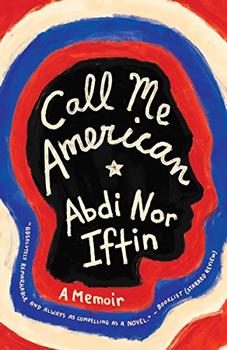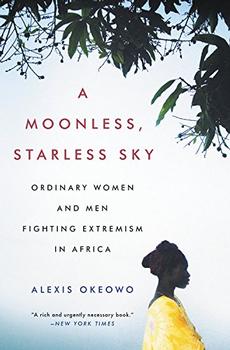Summary | Excerpt | Reviews | Beyond the book | Read-Alikes | Genres & Themes | Author Bio

Following her debut Black Mamba Boy, Somali writer Nadifa Mohamed's stirring second novel delicately weaves the fragile lives of three generations of women together as their beloved country plunges into civil war.
Looking at Somalia from the comfort of our living rooms, this beleaguered, battered state will strike many of us as terrifying, a place almost entirely closed to outsiders. An awareness of skewed politics and disease-ridden refugee camps might indeed be all we have experienced. For the most part our knowledge of ordinary Somali people is therefore limited and of its women, even less. Therefore any opportunity to gain even a smidgen of understanding is invaluable.
Despite having left the country with her family at the tender age of four, in The Orchard of Lost Souls, Mohamed manages an uncannily authentic portrayal of the dawning of a conflict that shattered the existence of many. In a sectioned, serendipitous approach that could have crumbled under the pen of a less talented writer, we meet Kawsar, an aging, bed-ridden widow; Deqo, refugee and street urchin; and the glorious Filsan, soldier of the regime. At a propaganda rally, an attack of stage-fright lands Deqo in serious trouble with the authorities. Kawsar intervenes, allowing Deqo the chance to escape, with Filsan in hot pursuit. This galvanizing incident unwittingly brings the lives of these three women hurtling to a shared fate and through subsequent events, Mohamed explores Somali political and social history in a way that is both unique and convincing.
Deqo, Kawsar and Filsan are believable characters and their natural place within the chaos turns this from a sob story of the war-torn variety to a realistic portrayal of a period and a people in time. Themes such as miscarriage, prostitution and even periods, rather than becoming overdramatized as "women's issues," add a further dimension to a story that does not feel sorry for itself but merely tells it like it is.
There are no stark "goodies" and "baddies" here. Instead, in Mohammed's world, even an initially unsavory and incomprehensible character such as Filsan, displays a vulnerability and complexity that belies her poker face. Through Filsan's eyes, the reader reluctantly begins to comprehend acts of outward senselessness and cruelty and, even, dare we confess it, feel a little compassion for this young woman whose heart turns out not to be so hard after all.
Similarly marginalized, although in an entirely different way, are Kawsar and Deqo. One is a cripple counting down her days, completely at the mercy of the bombs and, more damagingly, her memories. The other is a child living by her wits, finding sanctuary with an unlikely band of prostitutes. Deqo is a sweetheart, and every reader will want to take her away from the cold barrel that she calls her home. Kawsar, on the other hand, is downright unlikeable at times, her bitterness seeping through the pages. Made up of strong, stubborn, vulnerable characters in their own right, it is the background cast that truly brings this story to life. Case in point is Kawsar's volatile young maid Nurto, who flips through glossy magazines and dreams of being a model far away from the gunfire; perhaps we can see a little of ourselves in her stroppy glory. Similarly, the mean streets and towns these people inhabit are evocatively pictured. Full to the brim with colors and smells, good and bad, they bring the country to life all the more.
However, all the eloquent adjectives in the world are clearly nothing without a careful plot. Lacking any of the self-conscious planning associated with an inexperienced author, Mohamed deftly interlinks the women's narratives in a way that, if a little far-fetched, proves to be one that is immensely rewarding, heart-warming and thoroughly sagacious.
Think war-torn Somalia will leave you feeling depressed and at odds with the world? Think again. This portrait, albeit fictional, is illuminating.
![]() This review was originally published in The BookBrowse Review in March 2014, and has been updated for the
July 2015 edition.
Click here to go to this issue.
This review was originally published in The BookBrowse Review in March 2014, and has been updated for the
July 2015 edition.
Click here to go to this issue.

If you liked The Orchard of Lost Souls, try these:

by Abdi Nor Iftin
Published 2019
The incredible true story of a boy living in war-torn Somalia who escapes to America--first by way of the movies; years later, through a miraculous green card.

by Alexis Okeowo
Published 2018
In the tradition of Behind the Beautiful Forevers, this is a masterful, humane work of literary journalism by New Yorker staff writer Alexis Okeowo - a vivid narrative of Africans who are courageously resisting their continent's wave of fundamentalism.
The dirtiest book of all is the expurgated book
Click Here to find out who said this, as well as discovering other famous literary quotes!
Your guide toexceptional books
BookBrowse seeks out and recommends the best in contemporary fiction and nonfiction—books that not only engage and entertain but also deepen our understanding of ourselves and the world around us.